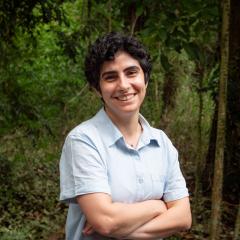Researchers from China and Australia have agreed to expand scientific research cooperation on reducing emissions in agriculture, after a successful academic symposium at Ninjing University held in May.
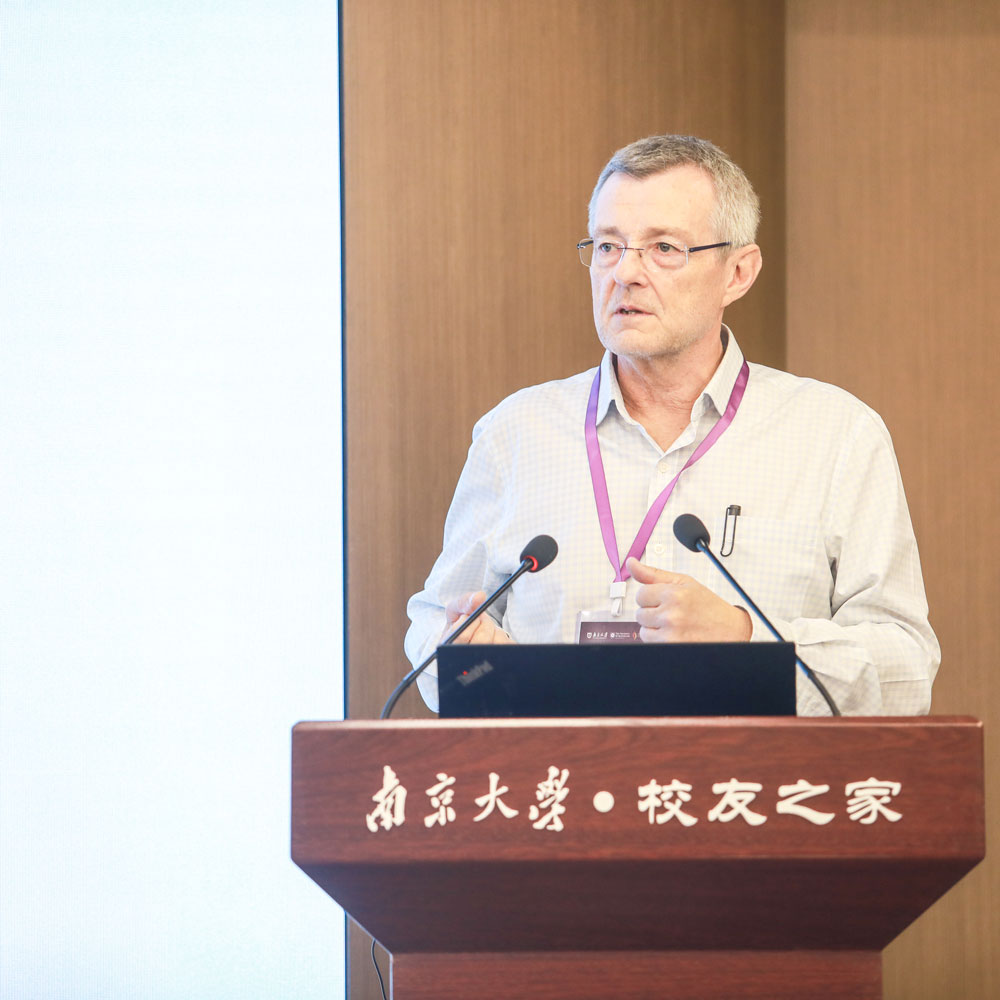
Reducing emissions in agriculture has become the key to the United Nations’ goal of achieving net zero emissions by 2050. In September 2023, Nanjing University and The University of Queensland jointly applied for "Pathways to Net Zero in Australian and Chinese Agriculture" project, funded by the Australian National Foundation for Australia-China Relations.
The project aims to explore scalable agricultural emission reduction solutions and deepen bilateral scientific research cooperation. The three-day meeting was the third phase of the academic exchange. The Nanjing University research team visited Australia in September 2024, and the UQ research team visited Jiangsu for research and exchange in November 2024.
Representatives from the Australian grains industry, Jiangsu Academy of Agricultural Sciences, Nanjing University Institute of Science and Technology, Library and School of Geography and Oceanography participated in the symposium held on 12 May.
The focus was on agricultural carbon reduction policies, technologies and model innovations, showcasing the results of previous cooperation, and promoting the establishment of new projects.
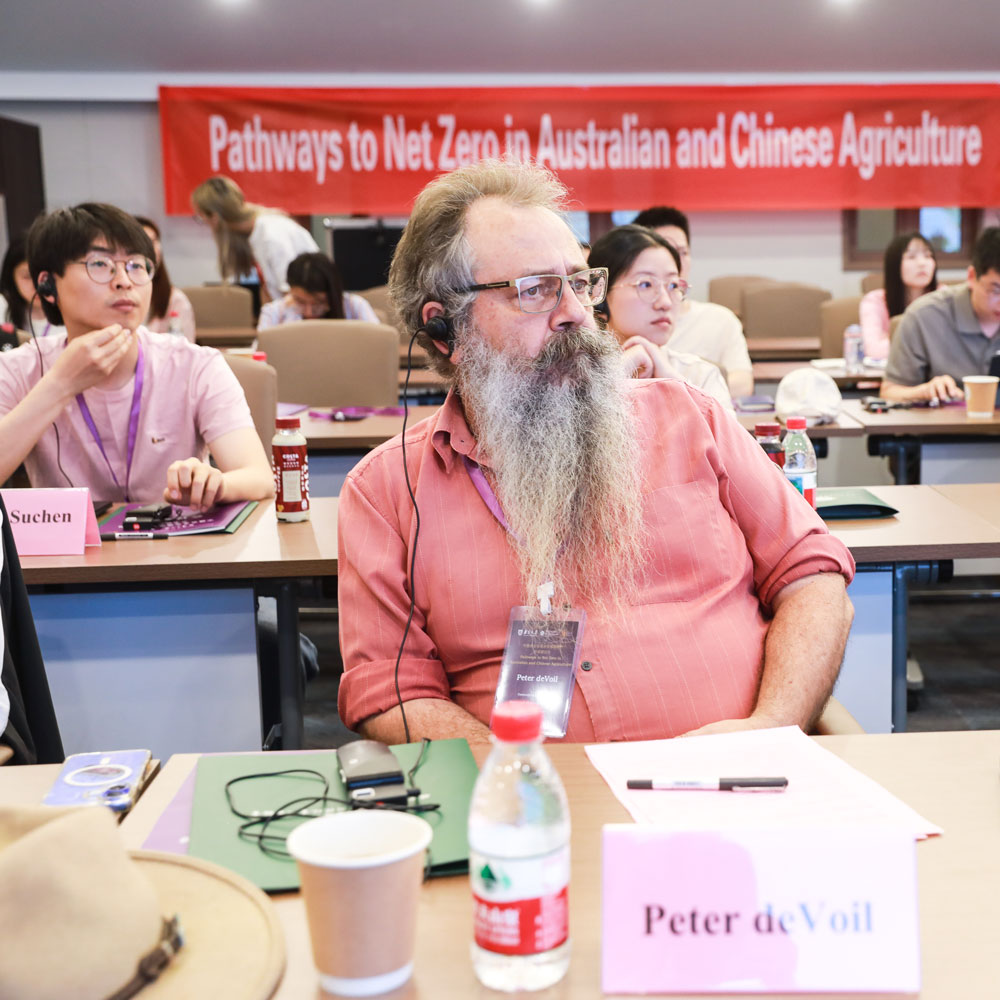
The meeting aimed to strengthen substantive cooperation between China and Australia in the fields of agricultural modelling and talent training and contribute a Sino-Australian solution that integrates theory and practice to global agricultural climate governance.
UQ Professor Daniel Rodriguez said the summit was extremely valuable.
“The Symposium strengthened collaboration between researchers from China and Australia, along with representatives from the Australian and Chinese grains industries,” Professor Rodriguez said.
“It fostered a better understanding of the opportunities and challenges involved in pursuing alternative pathways to achieve net-zero emissions in agriculture for both countries.
“Additionally, the symposium enhanced crop modelling capabilities among Chinese research students and identified future collaboration opportunities that align with Australia’s and China’s interests.”
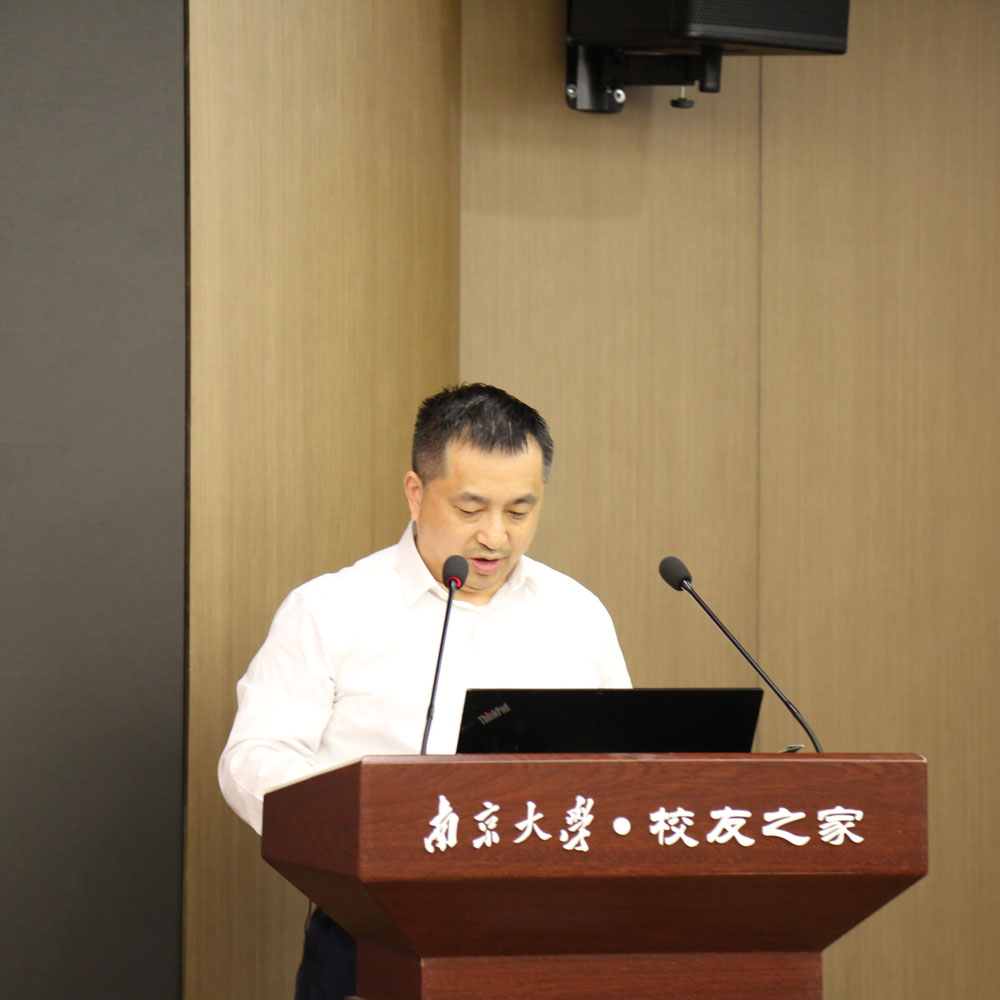
At the opening ceremony, Professor Zhou Dongshan, Vice President of the Institute of Science and Technology of Nanjing University warmly welcomed the Australian delegation and thanked the Australia-China Foundation for the funding. He emphasised the importance of the seminar in promoting China-Australia agricultural net zero emissions cooperation and said he looked forward to the bright future of expanding scientific and technological cooperation among Chinese and Australian experts and scholars.
Conference chair Professor Jin Xiaobin from the School of Geography and Oceanography of Nanjing University elaborated on the urgent need for agricultural emission reduction under the global climate crisis. He emphasized that this seminar was not only a concentrated display platform for the results of previous cooperation, but also an important opportunity to expand the China-Australia agricultural emission reduction coordination mechanism. He said it aimed to provide forward-looking China-Australia experience for global agriculture to cope with climate change and clarified the direction for the implementation of this academic seminar.
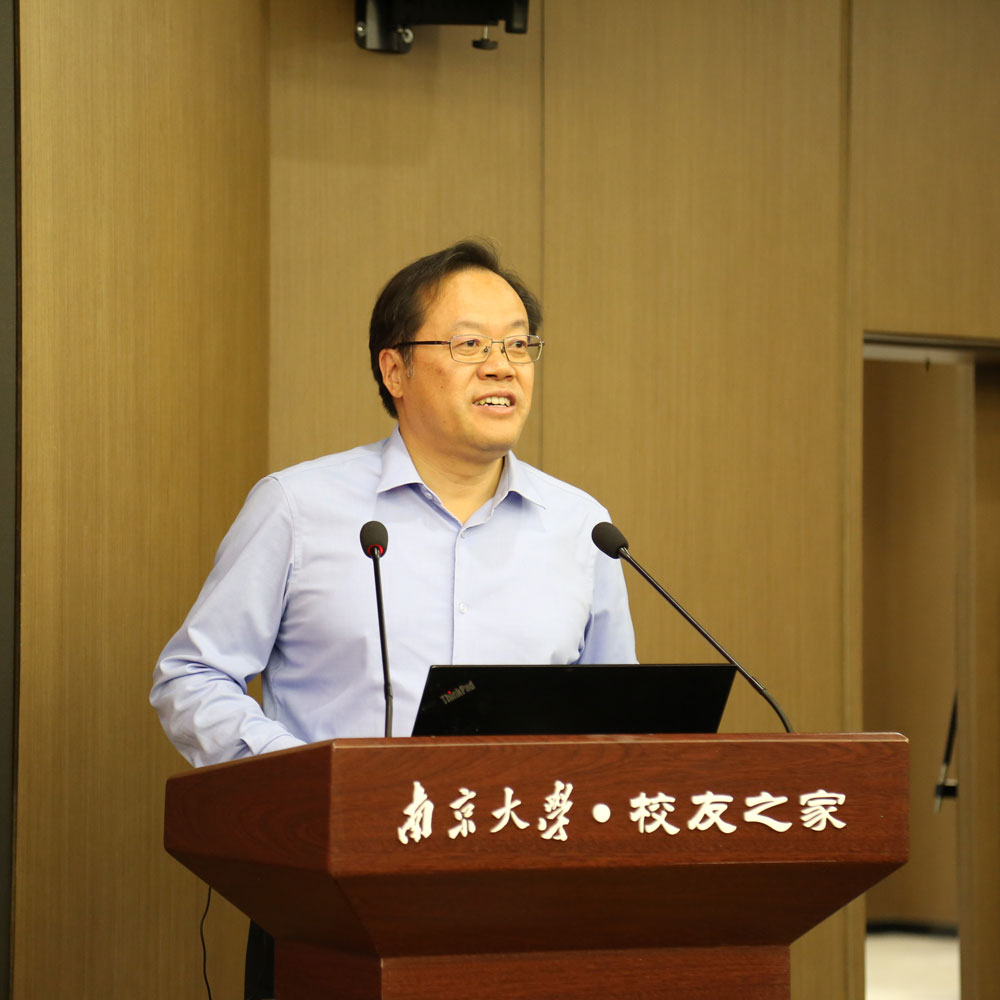
Professor Huang Xianjin, Director of the Nanjing University Library and the Key Laboratory of Carbon Neutrality and Land Space Optimization of the Ministry of Natural Resources told the gathering the key laboratory was a link to further strengthen communication and collaboration with domestic and foreign universities and research institutions, explore paths and solutions suitable for different regions, and help build a new pattern of green, coordinated and sustainable land development.
Professor Rodriguez shared The University of Queensland’s experience in agricultural innovation research, emphasising that the project will focus on exploring the complementary experience of China and Australia in sustainable agricultural practices, contributing wisdom to global food security through joint research, and allowing participants to have a more comprehensive understanding of the project’s international cooperation perspective and expected results.
Dr Kaara Klepper Director of Field Systems at the Australian Department of Primary Industries and Regional Development, delivered the first keynote speech, "Australia's Sustainable and High-Efficiency Grain Planting System". She introduced Australia's advanced experience in dryland grain cropping, including the use of precision agriculture practices, diverse crop rotations, and smart agricultural information systems. She told the conference that Australian farmers manage some of the most efficient grain production systems in the world, producing high-quality low-emissions intensity grain for the world.
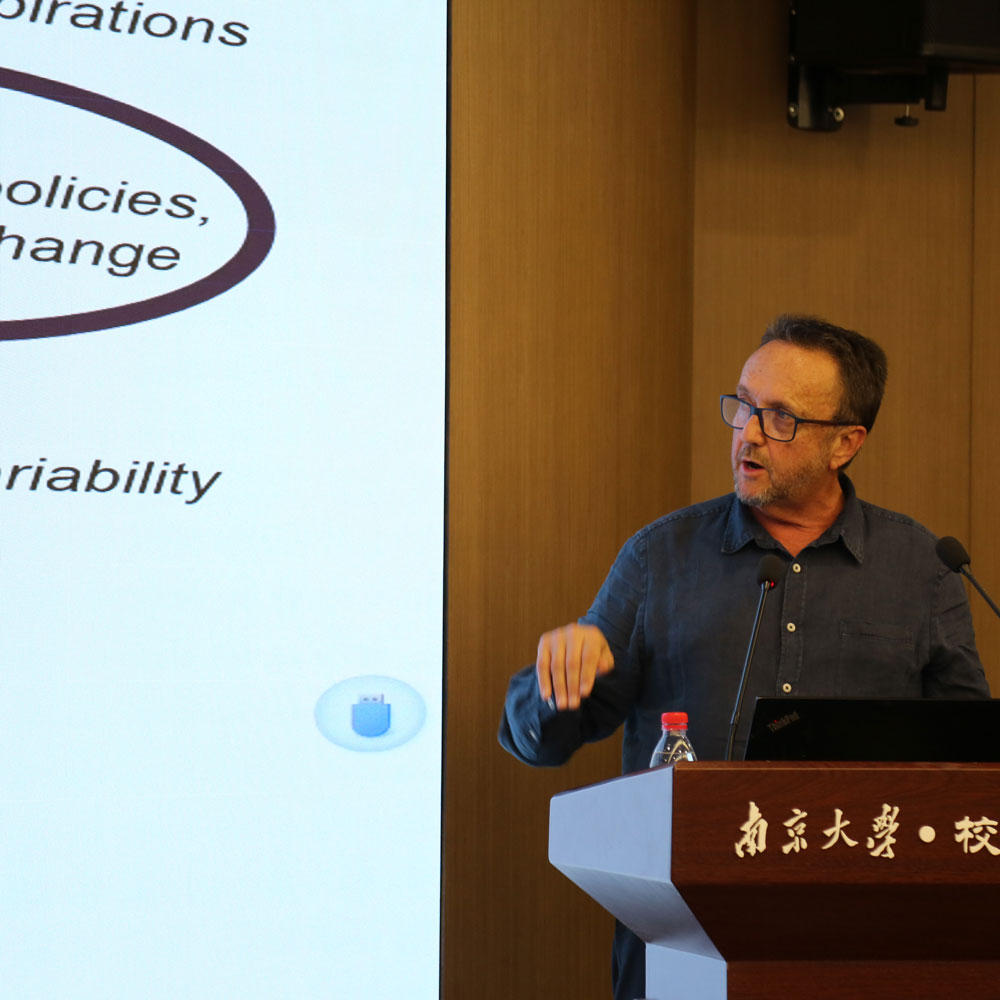
UQ’s Professor Damian Hine delivered an academic report entitled "Net Zero Agricultural System Transformation for High Value-added Markets - Opportunities for Integrating Production and Market Analysis", exploring new opportunities for agricultural system transformation. He pointed out that the opportunities for agricultural products are not only in traditional commodities such as grains, horticulture, meat and dairy products, but also can bring more value to producers and society through value-added production. He also explored the diversified market approaches to achieve zero waste and value-add through precision agricultural systems, emphasised the importance of data in agriculture, and demonstrated how to use public data to compile market archives to assist decision-making.
The day after the symposium featured a field trip to Muyan Riverside Mining Ecological Restoration Site, to demonstrate land degradation control, sustainable land use and pathways to green and low-carbon development. The two teams also visited the Longtan Area mine restoration project in the Yangtze River Economic Belt as well as the National Agricultural High-Tech Industry Demonstration Zone in Baima Town.
The third and final day featured student presentations, an APSIM Model Workshop and a forum to discuss future research partnerships between the two countries.
"Representatives from both China and Australia agreed that there is significant potential for both countries to significantly impact the sustainable development of food systems, not only within their own regions but also in global hotspots facing food insecurity and rural poverty," Professor Rodriguez said .
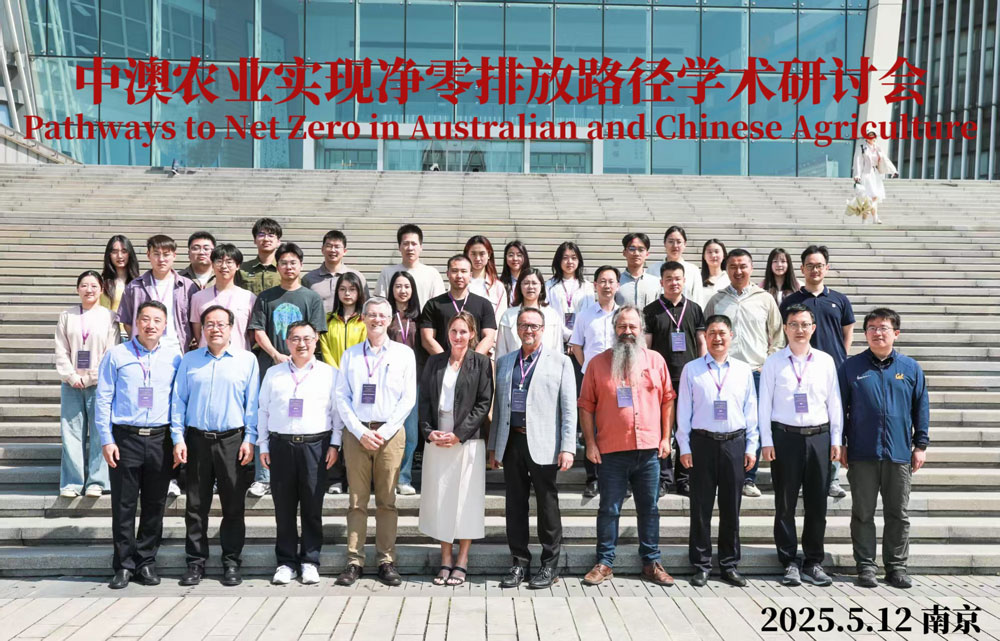
“Participants at the symposium agreed that significant returns on investments in Africa are more likely when focusing on activities that enhance research and educational institutions.
“The next steps in this collaboration will involve developing a plan for co-funded research and capacity building across eastern and southern Africa, where both universities have extensive experience.
“This initiative will primarily aim to create a lasting legacy by strengthening Africa's agricultural research and higher education systems, including key research and educational institutions from all participating countries.”
The conference was supported by the Australian National Foundation for Australia-China Relations with the aim of showcasing the interim results of the collaborative project between Nanjing University and The University of Queensland.
Contact: UQ Prof Daniel Rodriguez d.rodriguez@uq.edu.au +61 434 075 094 or QAAFI media Natalie MacGregor, n.macgregor@uq.edu.au, +61 409 135 651.
The Queensland Alliance for Agriculture and Food Innovation is a research institute at The University of Queensland established with and supported by the Department of Primary Industries.


